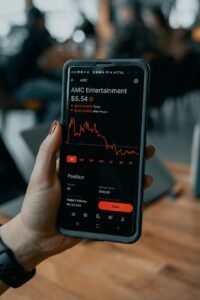The Pros and Cons of Automated Forex Trading Systems
Forex trading, also known as foreign exchange trading, is a decentralized global market where all the world’s currencies trade. It is the most liquid market in the world, with an average daily trading volume of over $6 trillion. With such a massive market, it is no surprise that traders are constantly looking for ways to enhance their profitability and efficiency. One popular tool in the forex trading world is automated trading systems.
Automated forex trading systems are computer programs that analyze the market and execute trades on behalf of the trader. These systems use algorithms and predefined conditions to identify trading opportunities and automatically place trades. While automated trading systems offer numerous benefits, they also come with their fair share of drawbacks. In this article, we will explore the pros and cons of automated forex trading systems.
Pros of Automated Forex Trading Systems:
1. Elimination of Emotional Bias: One of the biggest advantages of using automated trading systems is the removal of emotional bias from trading decisions. Emotions such as fear and greed can often cloud a trader’s judgment and lead to poor decision-making. Automated systems, on the other hand, are not influenced by emotions and stick to predefined parameters, ensuring disciplined trading.
2. 24/7 Trading: The forex market is open 24 hours a day, five days a week. This means that traders need to constantly monitor the market for potential trading opportunities. Automated trading systems can operate round the clock, allowing traders to take advantage of every opportunity, even when they are unable to be in front of their computer screens.
3. Backtesting and Optimization: Automated trading systems allow traders to backtest their strategies using historical data. This feature enables traders to evaluate the performance of their strategies over time and make necessary adjustments to improve profitability. It also helps traders identify potential flaws in their strategies before risking real money.
4. Speed and Efficiency: Automated trading systems can execute trades at a much faster pace than manual trading. These systems are designed to identify and execute trades instantaneously, minimizing the time lag between signal generation and trade execution. This speed and efficiency can be crucial in fast-moving markets, where every second counts.
Cons of Automated Forex Trading Systems:
1. Lack of Adaptability: Automated trading systems are based on predefined algorithms and conditions. While this can be advantageous in certain market conditions, it can also limit their adaptability to changing market dynamics. Markets are constantly evolving, and strategies that were once profitable may become ineffective over time. Traders using automated systems must constantly monitor and update their strategies to ensure they remain relevant.
2. Technical Failures: Automated trading systems rely heavily on technology, and technical failures can occur. Internet connectivity issues, power outages, or software glitches can disrupt the functioning of these systems, leading to missed trading opportunities or erroneous trades. Traders using automated systems must have backup plans in place to mitigate the risks associated with technical failures.
3. Over-Optimization: While backtesting and optimization are valuable tools, they can also lead to over-optimization. Over-optimization occurs when a trading system is fine-tuned to perform exceptionally well on historical data but fails to deliver similar results in live trading. This phenomenon, also known as “curve fitting,” can lead to false expectations and disappointment when the system fails to perform as expected in real-time trading.
4. Lack of Human Judgment: Automated trading systems are purely based on predefined rules and parameters. They lack the human judgment and intuition that can be crucial in certain market situations. There are times when market conditions are ambiguous, and a human trader’s experience and intuition can provide valuable insights that an automated system may overlook.
In conclusion, automated forex trading systems offer numerous benefits, including the elimination of emotional bias, 24/7 trading capabilities, backtesting and optimization features, and speed and efficiency. However, they also come with drawbacks, such as lack of adaptability, technical failures, over-optimization, and the absence of human judgment. Traders must carefully assess their own trading style and objectives before deciding whether to use an automated trading system. It is important to remember that while these systems can enhance trading efficiency, they should not be seen as a substitute for a trader’s own knowledge, skill, and judgment.





